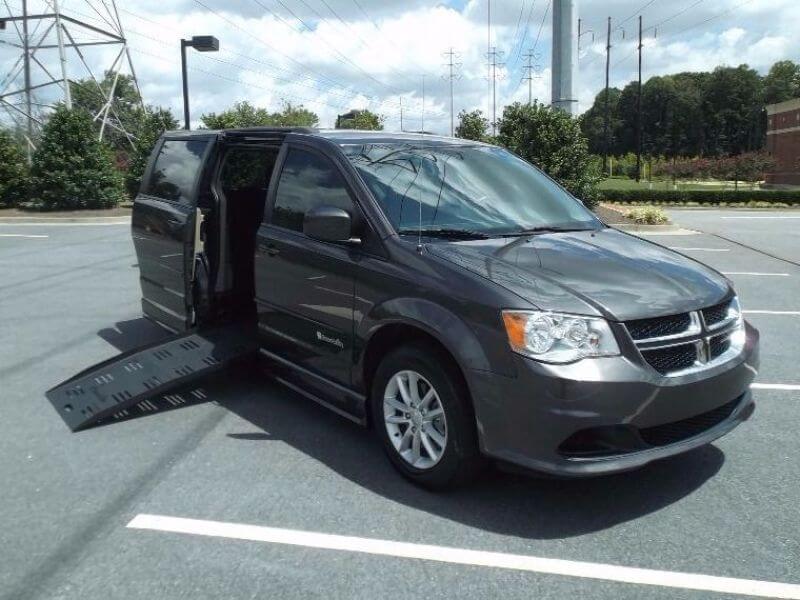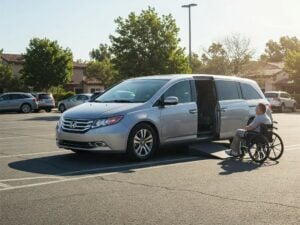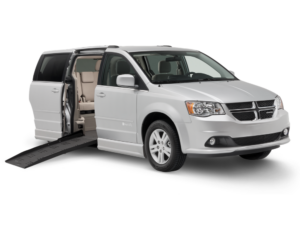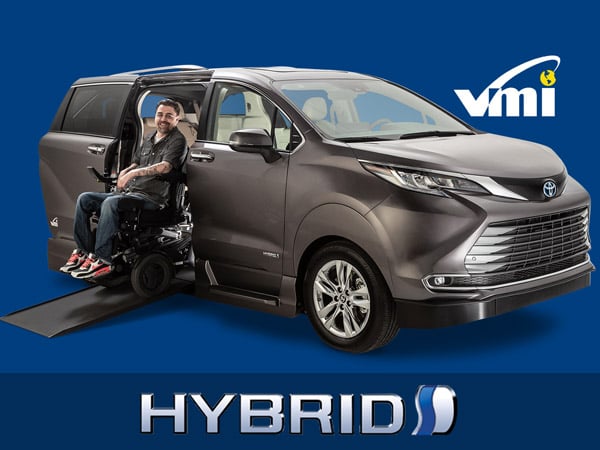 Going out in public is often riddled with obstacles for people with physical disabilities. While this is largely due to inaccessible structures like stairs and narrow doors, so many unnecessary barriers are created by able-bodied people who place themselves where they shouldn’t be. That’s not to say I believe I should have access to special privileges because of my disability. Rather, reserved access locations are intended to give people with disabilities equal opportunities to experience the world around them. Here are four accessible places where able-bodied people should never be:
Going out in public is often riddled with obstacles for people with physical disabilities. While this is largely due to inaccessible structures like stairs and narrow doors, so many unnecessary barriers are created by able-bodied people who place themselves where they shouldn’t be. That’s not to say I believe I should have access to special privileges because of my disability. Rather, reserved access locations are intended to give people with disabilities equal opportunities to experience the world around them. Here are four accessible places where able-bodied people should never be:
1) Handicap Parking Spaces (and the lines in between them).
By far, the most frustrating obstacle put in place by able-bodied people is parking illegally in handicap accessible parking spaces. Though I often joke that handicap parking is one of the “perks” of my disability, the reality is that it’s a necessity, not a convenience. I get around in a minivan that’s adapted with a foldout ramp so I can get my wheelchair in and out. If I don’t have access to a parking spot with enough space, there is literally no way for me to get out of my van, which directly prevents me from getting where I need to go.
I can’t even count how frequently I enter a parking lot, only to find the last handicap spot occupied by someone who doesn’t have proper license plates or a permit. Or, I’ll come out of somewhere and find a car illegally parked in the blue lines next to my van, completely blocking access for me to get in and leaving me stranded.
Parking illegally in a handicap spot denies an important means of access to all people who legitimately need the accessible spaces. Non-disabled people have an entire parking lot full of spaces to choose from; disabled people usually have only a few accessible spaces. They are not there for the convenience of people who are lazy, or for people who claim they just needed to run into the store for a second. Illegal use of any part of a handicap parking space is inexcusable in any situation.
2) Accessible restroom stalls.
It seems that every time my bladder is so full I can barely hold it in, I find all the restroom stalls empty except the accessible stall. Able-bodied people see the big, roomy bathroom open and are drawn to it. I understand not wanting to be cramped and I know people don’t choose to use the accessible restrooms to blatantly deny access to disabled people. However, using accessible bathroom facilities, especially when others are available, does demonstrate that people with disabilities aren’t in society’s conscience as being just as likely to be out in public as non-disabled people.
If every other stall is taken, I’ll give you a free pass. But since I physically cannot get into regular sized restroom stalls, I don’t think it’s asking too much for non-disabled people to leave open my one bathroom option when there are five other empty ones that are readily available.
3) Accessible shower stalls.
Much like accessible bathroom stalls, there’s usually only one accessible shower facility in places like shared college dormitory restrooms and gym locker rooms. The accessible stalls are roomier and they often have a fold-down seat attached to the wall. I know this may be tempting for non-disabled people who want a shower with room to dance around or a place to rest tired feet, but again, accessible facilities are not intended for the convenience of able-bodied people.
Apparently, this is a hard concept for people. Recently, my mom and I went for a swim at our local gym. Afterwards, my mom (who also uses a wheelchair) wanted to rinse off the chlorine, so she went to the shower area, only to discover that every shower stall was empty except for the accessible one. There was a woman standing up inside it, taking her sweet time. My mom waited a few minutes and then politely asked the woman if she would be finished soon since she was occupying the only stall my mom could safely use. The woman unapologetically told my mom she would be in there a while.
I get that it’s a slightly awkward situation to have your shower interrupted, and I’d like to give the woman the benefit of the doubt that perhaps she had a hidden disability that caused her to need the shower as well. More often than not, though, it seems that able-bodied people see accessible showers as a luxury, rather than realizing that they are a necessity for disabled people.
4) Accessible dressing rooms.
The stores where I shop all have the requisite large dressing room that qualifies as “accessible.” Unfortunately, they are rarely, if ever, properly labeled or guarded by store employees. Hence, some of the worst offenders of able-bodied people who block public access are the ones who use accessible dressing rooms.
I’ve had to wait for upwards of 15-20 minutes while able-bodied people take their sweet time in the only dressing room I can get my wheelchair into, even though several other regular dressing rooms are available. When I dare to politely ask people if they can switch dressing rooms, they frequently act as though I’ve just demanded they hand over their car keys and all their money. People need to relax. You have fifteen dressing rooms to choose from; I have one.
Even worse, sometimes store employees think that accessible dressing rooms are made larger so they can be used as storage closets. I’ve gotten attitudes and dirty looks for asking an employee to move things out of the accessible dressing room that shouldn’t be there in the first place. Or, I’ve been told to just try on the clothes at home. Chances are, a store will sooner loose my business.
If you don’t have a disability, then next time you just have to grab a gallon of milk or try on a bunch of shirts, please don’t take up space in reserved accessible places. Leaving accessible places open for the people who truly need them is a super simple way to promote inclusion and acceptance of the disability community.
Has your access to an accessible space ever been blocked? How did you handle the situation?

Find your perfect Wheelchair Van
Select from thousands of wheelchair vans for sale from hundreds of nationwide dealers
The Mobility Resource has one of the largest selections of Dodge, Toyota, Chrysler, Honda, Ford, Chevrolet wheelchair vans













Tweet
Share https://www.themobilityresource.com/blog/post/places-nondisabled-people-should-never-be/